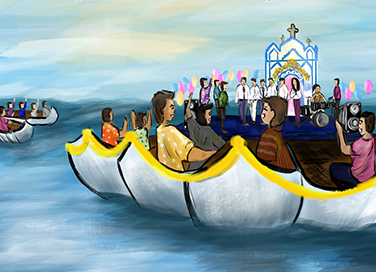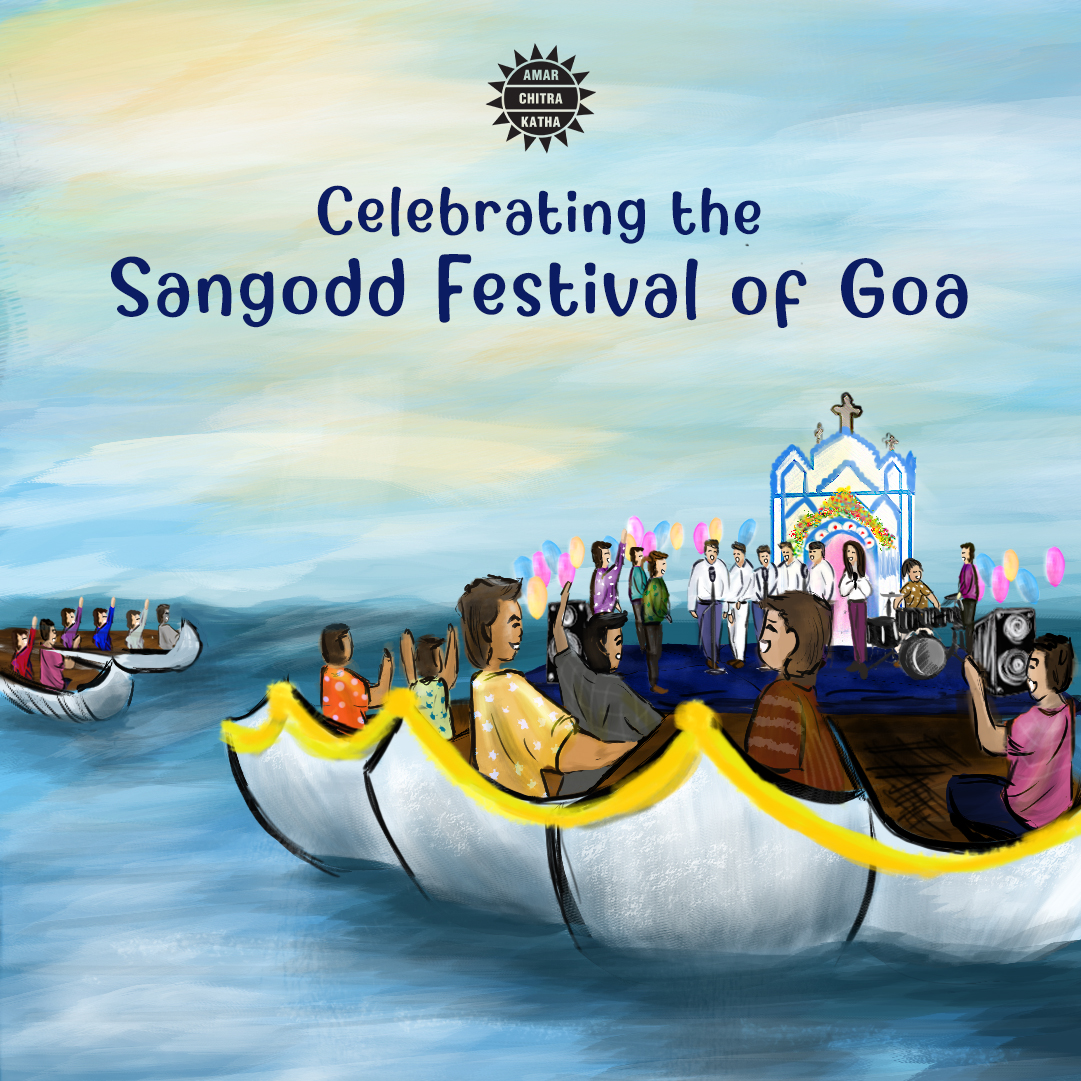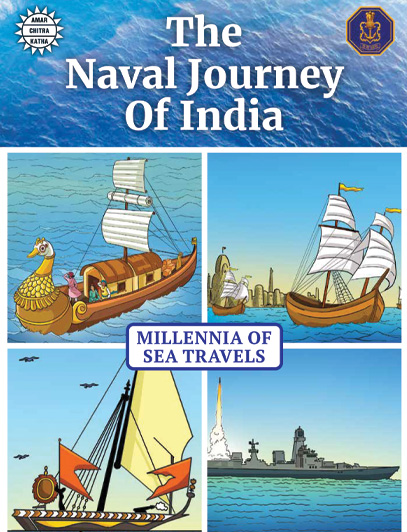Sangodd Festival of Goa
- November 3, 2021


Sangodd Festival of Goa
- November 3, 2021

Every year, Goa celebrates the festival of Sangodd on June 29. The day marks the feasts of Saint Peter and Saint Paul. Saint Peter, who was a fisherman by profession, is the patron saint of all fishermen and so this festival is very important to the fishing community. This day marks the start of the ‘rampon’ fishing activity and thus the blessing of the sea, as well as preparing the boats for the coming season, takes place on this day.
For the celebration of this feast, canoes are tied together with wooden planks on top to form a temporary stage on the water. The tying together of the boats is also meant to symbolise the role played by Saint Peter in the building of the Catholic Church. All the entertainment and festivities of the day take place on this makeshift stage. The fisherfolk decorate their boats with coconut palms, flowers, and balloons. Sometimes, structures resembling churches are also built on top of the canoes. The boats are equipped with sound systems as colourfully attired fishermen perform folk dance, music, skits and even sing traditional songs.
This tradition is an old one, with fishing villages in Goa having celebrated Sangodd in this way for centuries. Each church or community has their own unique smaller customs and traditions that are passed down the generations.
To receive more such stories in your Inbox & WhatsApp, Please share your Email and Mobile number.
The Sangodd festival is a unique cultural tradition of the fishing villages in Goa. Apart from celebrating the fishing community and seeking blessings from Saint Peter for the coming season, this festival is also seen as a time of togetherness and unity.
Find more such fascinating stories of India on the ACK Comics app!
To receive more such stories in your Inbox & WhatsApp, Please share your Email and Mobile number.

Comic of The Month
The Naval Journey of India Book I
This book is the first of a three-book series that takes a deep and detailed look at India's Naval History and a deep insight into the lives of our men and women in white. But any series on the Indian Navy has to start at the very beginning - exploring India's celebrated maritime history. Join our little hero, Bharat, and his grandfather, Commodore Sagar, as they sail into the deep blue waters of time. Book I of The Naval Journey of India takes a sweeping look at India's maritime endeavours, how the seas impacted us over millennia and how the oceans made us who we are.